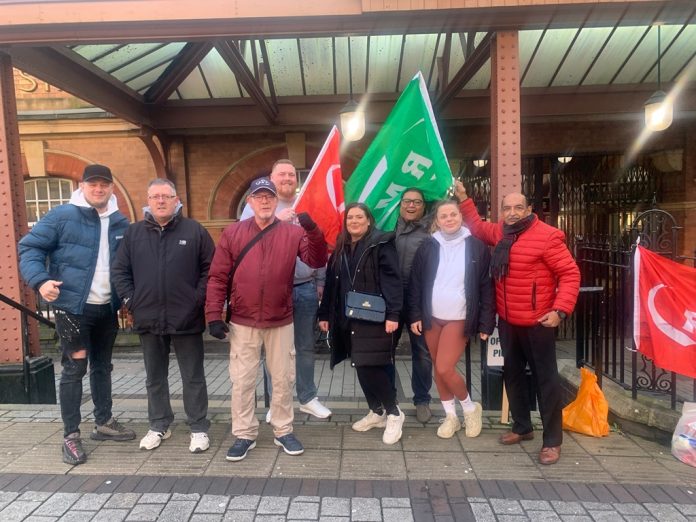Step up and coordinate action
A Midlands RMT member
RMT members at 14 Train Operating Companies (TOCs) have returned a fourth consecutive ‘yes’ vote to continue the battle in defence of our jobs, pay and conditions.
Despite the dispute rumbling on for nearly eighteen months, including 25 days of strike action, the resolve of most members to fight on remains.
Back in June 2022, along with the posties, we were the first out of the starting blocks on a national scale as employers up and down the country began to try and claw back long-held terms and conditions while offering below-inflation pay rises.
But while some national disputes have been settled, rail workers in the RMT along with those in ASLEF are continuing the fight.
It is clear to us all that the TOC bosses are backed up to the hilt by the Tory government. So far they have conceded a little by increasing the pay offer and removing the immediate threat of ‘driver-only operation’.
The question now is what to do with our newly refreshed strike mandate. At the beginning of the dispute we took action comprising several days across a week. That has unfortunately diminished over time to only one or two days in any week, sometimes weeks or months apart.
Renewed campaign
To push the dispute back up the agenda, a renewed campaign must be launched with pressure to coordinate action with our sister unions both on and off the railway. The leadership also needs to launch a campaign inside the union to raise the sights of the members and reps, to ensure the membership is on board and ready to take the necessary action.
We cannot simply wait for Starmer’s Labour to rescue us, particularly while the Labour leadership refuses to commit to taking the Tories’ £2 billion railway cuts off the table. As RMT members agreed at this year’s AGM, in a motion supporting Jeremy Corbyn standing in the general election, even if that means independently of Labour: “Workers need political representation that supports their action against the cost-of-living squeeze, and stands for policies such as re-nationalisation, opposition to cuts, and for the repeal of the Tory anti-union laws”.









